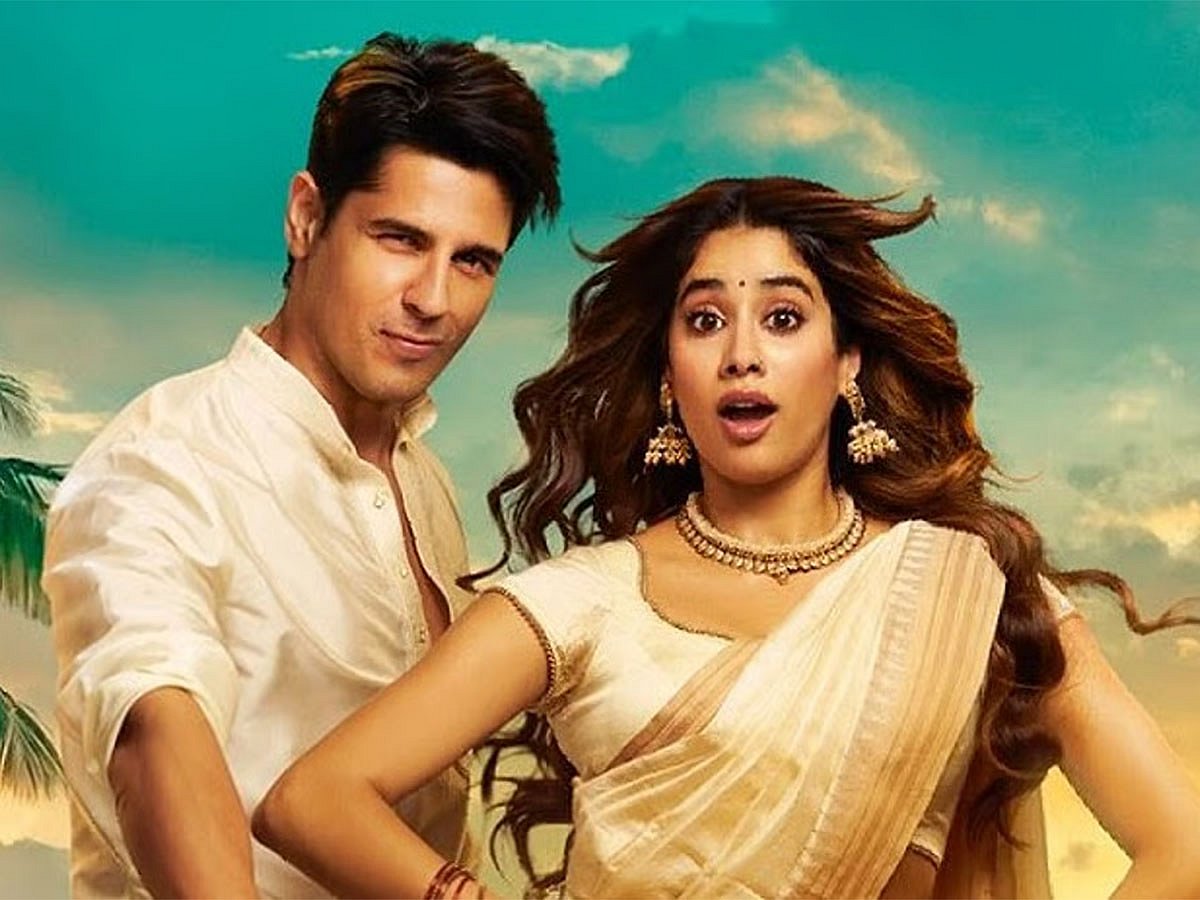Bollywood, stop stereotyping Malayalis and Janhvi Kapoor shows why representation matters
Why not spend less on a star's wardrobe or entourage budget and hire a dialect coach?

Dear Bollywood,
I recently watched the trailer of Param Sundari, starring Janhvi Kapoor and Sidharth Malhotra. The songs? Catchy. The chemistry? Passable. But what truly got my imaginary veshti in a twist was Janhvi Kapoor’s painfully inauthentic Malayalam accent.
She’s meant to be this jasmine-flower-wearing, mohiniyattam-dancing, half-sari-clad Malayali girl. Except, she isn’t. Agreed, Janhvi is half Tamil (through her mother, the legendary Sridevi) and half Punjabi (through her father, producer Boney Kapoor) makes the misrepresentation sting even more, because you’d expect her to bring cultural nuance rather than lean into stereotypes.
And Bollywood, once again, has reduced an entire culture to a cardboard stereotype.
Let me spell this out for you. I am a full-blown Malayali. I love Kerala with every fibre of my being — the food, the language, the landscape, the quirks of my people. But to be so sloppily represented on screen, time and again, is nothing short of soul-destroying.
The Serial offender
Bollywood has long been guilty of stereotyping regional communities, especially Malayalis, Bengalis, and Goans. We’re either portrayed as erudite, left-leaning intellectuals who walk around quoting Marx, or as jasmine-scented “angels” with flowers in our hair and half-saris hanging precariously. Newsflash: Not all Malayali women learn classical Indian dance, nor do we prance around in gilded half-skirts with low-cut blouses.
And about the accent. That caricatured singsong Hindi, peppered with mangled Malayalam phrases, is not only lazy but also insulting. The playful moment where she calls Sidharth’s character “mannuni,” supposedly “idiot” in Malayalam, sounded as if an alien was speaking.
This is not representation. This is parody.
About that name…
At one point in the trailer, Janhvi introduces herself as “Thekkapatta Sundari Damodaran Pillai.” Now, let’s pause. Thekkapatta in Malayalam can mean Arrack, a local beverage, from South. Imagine saddling your heroine with a name that could just as easily double up as a liquor brand. Again, did she pronounce it wrong because I had to play the trailer multiple times to understand that name. That’s not just sloppy; that’s downright ridiculous.
Add to that the garbled delivery, and the whole thing goes from authentic to alien in seconds.
Bollywood’s long list of crimes
This isn’t the first time. Deepika Padukone’s Tamilian act in Chennai Express was drenched in stereotypes. Sanya Malhotra in Meenakshi Sundareshwar reduced South Indian women to filter-coffee clichés. Alia Bhatt in Two States as a Tamilian was another cringe fest. Each time, the same lazy playbook is dusted off: throw in jasmine flowers, a few butchered words of the local language, and they think they nailed South Indians.
What Hollywood gets right
It’s not like this can’t be done well. Hollywood has, more often than not, taken cultural authenticity seriously — from Dev Patel’s Gujarati cadence in Lion to Riz Ahmed’s nuanced portrayal of a Pakistani-American in Sound of Metal.
They hire accent coaches, dialect specialists, and cultural consultants. They understand that nuance matters. That respect for detail elevates performance.
So why is Bollywood, with its multi-billion-rupee machinery, still allergic to research?
The fix is simple
Here’s an idea: instead of spending obscene amounts on your star’s entourage, gym-honed abs, or glittering wardrobe, divert a fraction of that budget towards getting the representation right.
Hire a dialect coach.
Consult regional experts.
Run the script past actual Malayalis.
Use ChatGPT if you must — type “dos and don’ts while playing a Malayali character” and you’ll have a cultural checklist in seconds.
We’re in 2025. There’s no excuse for cultural laziness anymore.
Performative name-dropping isn’t enough
And please, stop thinking you’re doing us a favour by casually dropping names like Mohanlal, Rajinikanth, or Allu Arjun in your scripts. It reeks of performative tokenism. That wink-wink “See, we know your heroes too!” moment doesn’t land. It looks fake.
A personal plea
Bollywood, I am disappointed. Deeply. You’re not just misrepresenting us; you’re erasing us. You’re turning rich, layered identities into cheap clichés. And that is a disservice to audiences, actors, and cinema itself.
So, next time you greenlight a Malayali character, remember this: we are not just jasmine-wearing, mohiniyattam-dancing “sundaris” with caricature accents.
We’re writers, engineers, nurses, filmmakers, and entrepreneurs. We speak a language that is lyrical and complex. We live lives far richer than your lazy stereotypes.
Spend less on star wardrobes and more on cultural truth. Until then, every time I see Bollywood butcher yet another Malayali character, my veshti will remain, quite justifiably, in a twist.
Network Links
GN StoreDownload our app
© Al Nisr Publishing LLC 2026. All rights reserved.